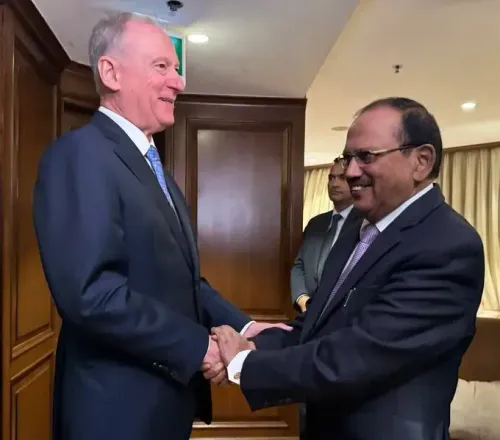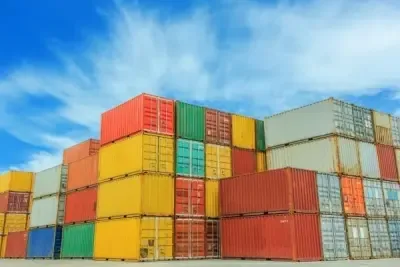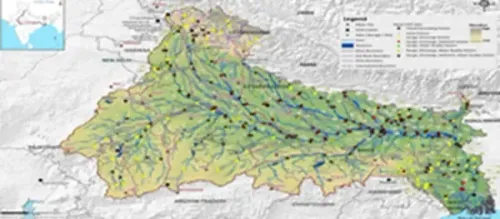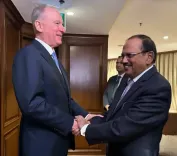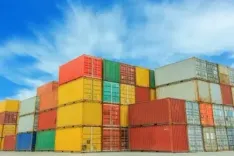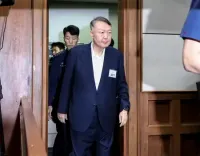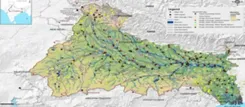How is HM Amit Shah Enhancing Cooperative Federalism in the Northern Zonal Council?
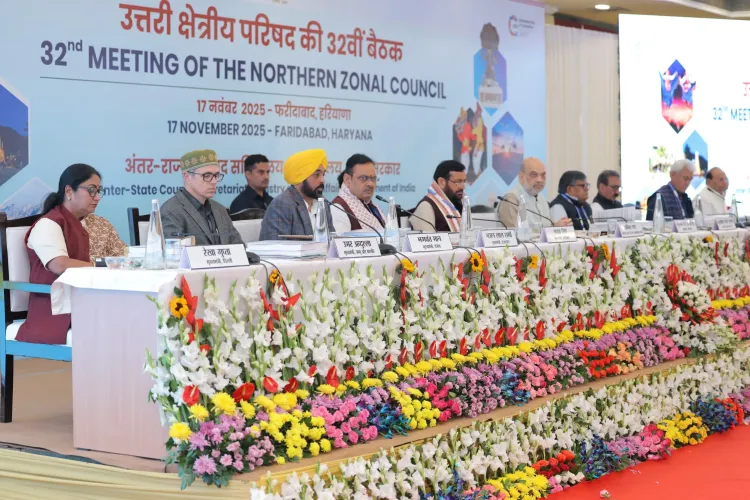
Synopsis
Key Takeaways
- Amit Shah chaired the 32nd Northern Zonal Council meeting.
- The meeting focused on strengthening cooperative federalism.
- Key issues included women and children's safety, banking access in villages, and regional development.
- The council comprises several states and union territories.
- 63 meetings have been held in 11 years, promoting dialogue and cooperation.
Faridabad, Nov 17 (NationPress) On Monday, Union Home Minister Amit Shah presided over the 32nd session of the Northern Zonal Council, fostering a dialogue focused on solutions to critical issues between the Centre and the states. This initiative aims to bolster cooperative federalism.
The session commenced with a moment of silence for the victims of the Delhi blast that occurred on November 10.
Attending the meeting, Delhi Chief Minister Rekha Gupta shared on X, “Today, I engaged in the 32nd meeting of the Northern Zonal Council led by the esteemed Union Home and Cooperation Minister Shri @AmitShahJi.”
“The Honorable Prime Minister Shri @narendramodiJi has established cooperative federalism as a cornerstone for nation-building. The Northern Zonal Council serves as a highly effective and results-driven platform that actualizes this vision,” she remarked.
“This council promotes an open, constructive, and solution-focused dialogue on significant issues concerning the Centre and the states. Many intricate problems can only be resolved through collective involvement from both the Centre and various states, and this council enhances that collaborative effort,” stated the Delhi Chief Minister.
The significance of Zonal Council meetings has increased, as they tackle issues of national relevance, which include the prompt investigation of sexual offences against women and children, alongside the enforcement of Fast Track Special Courts (FTSC) for their quick resolution.
Topics such as establishing banking facilities in every village, the rollout of the Emergency Response Support System (ERSS-112), and various regional interests like nutrition, education, health, electricity, urban planning, and the cooperative system were also scheduled for discussion, according to a statement.
The Northern Zonal Council includes the states and UTs of Haryana, Himachal Pradesh, Punjab, Rajasthan, Delhi, Jammu and Kashmir, Ladakh, and Chandigarh.
Senior officials from the Centre, state governments, and union territories participated in this meeting, which was chaired by HM Shah.
This gathering was organized by the Inter-State Council Secretariat under the Ministry of Home Affairs, with the Haryana government hosting.
The Union Home Minister serves as the chairperson of the Northern Zonal Council, with Haryana Chief Minister Nayab Singh Saini acting as its vice-chairperson.
Although the role of the Zonal Councils is advisory, they have proven to be pivotal in fostering positive relationships built on mutual understanding and cooperation across various sectors over recent years.
Five Zonal Councils, including the Northern Zonal Council, were established as per Sections 15 to 22 of the States Reorganisation Act of 1956.
In the past 11 years, a total of 63 meetings of different Zonal Councils and their permanent committees have been conducted with the collaboration of all state governments, Central ministries, and departments, as mentioned in a statement.
The Zonal Councils also provide a platform for addressing and advancing issues and disputes between the Centre and Member States/UTs, as well as among the Member States/UTs and within the zone.

